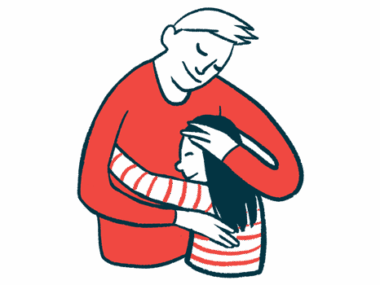‘Seizures are the tip of the iceberg’ for Angelman patients, families
Falls, sleep problems can also negatively affect life quality: survey of caregivers
Written by |

Angelman syndrome patients who experience falls or sleep problems tend to have worse quality of life, according to a survey of caregivers.
“Significant findings from this caregiver study revealed that the ability to walk and ambulate is associated with higher [quality of life], whereas falls, problems with sleep, and seizures negatively impact the [quality of life] of individuals” with Angelman, researchers wrote in a study, “Quality of Life in Angelman Syndrome: A Caregivers’ Survey,” which was published in Pediatric Neurology.
Angelman syndrome is characterized by symptoms including seizures, an unusually cheerful demeanor, developmental delays, and problems with speech.
Caregivers can provide insight about lived experiences of patients
Surveys of caregivers can be a valuable way for researchers to learn more about the lived experiences of people with Angelman. Earlier studies that surveyed caregivers focused mostly on the frequency of seizures and methods used to control seizures.
In the new study, a team of U.S. researchers collaborated with the Angelman Syndrome Foundation to conduct a survey of Angelman caregivers to get a more holistic view of the condition’s impact on patients and their families.
“The goal of the current study was to increase our knowledge regarding the burden of unmet clinical needs with regard to prevalent features present in individuals with AS [Angelman syndrome] and to expand our awareness and understanding of health-related factors influencing and affecting quality of life,” the scientists wrote.
The survey was answered by 183 Angelman caregivers, most of whom were mothers of the person with Angelman. More than 80% of the patients lived in the U.S., and about three-quarters identified as white.
Results showed about 80% of the Angelman patients had experienced seizures, which first appeared at an average age slightly younger than 3 years old. For most patients, seizures became notably less frequent over time. The vast majority of patients had used some form of anti-seizure medication, and caregivers mostly reported that these treatments helped to control seizures.
Most (88%) of the Angelman patients were able to walk, on their own or with some assistance. More than half (58%) of patients with available data had a history of falls, with about one in 10 having experienced serious injuries like broken bones, lost teeth, or black eyes due to falling. Most falls were reported to be related to seizures.
“Falls create a significant degree of morbidity in individuals with AS, so educating caregivers regarding fall prevention is of utmost importance,” the researchers noted.
Nearly three-quarters (71.6%) of the caregivers reported that their patient had experienced problems with sleep in the past month, such as difficulty falling asleep or waking up frequently during the night.
To assess life quality, caregivers were administered a standardized assessment called the Pediatric Epilepsy Module Quality of Life Inventory. The researchers conducted statistical analyses to look for factors that were significantly associated with poorer quality of life, based on these scores.
Falls create a significant degree of morbidity in individuals with [Angelman syndrome], so educating caregivers regarding fall prevention is of utmost importance.
Sleep problems, falls, inability to walk associated with poorer quality of life
Results showed sleep problems and falls were associated with poorer quality of life. An inability to walk was also linked to worse life quality.
Life quality scores also tended to be lower among patients who had seizures compared to those who did not, though the association between seizures and life quality scores did not quite reach statistical significance. No significant association was found between life quality and the distance from hospitals to patients’ homes.
Collectively, these data highlight the importance of addressing non-seizure issues such as falls and sleep problems for people with Angelman, since for patients and their families, “seizures are the tip of the iceberg,” the researchers concluded.






